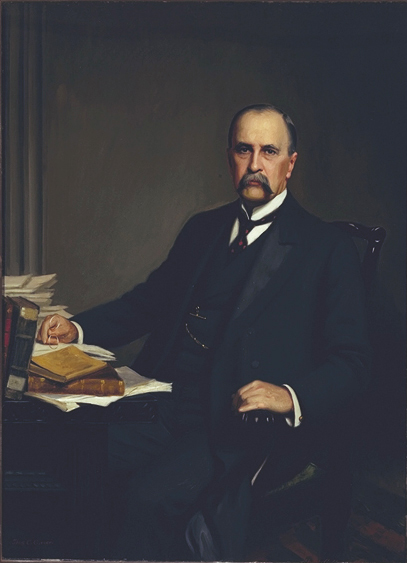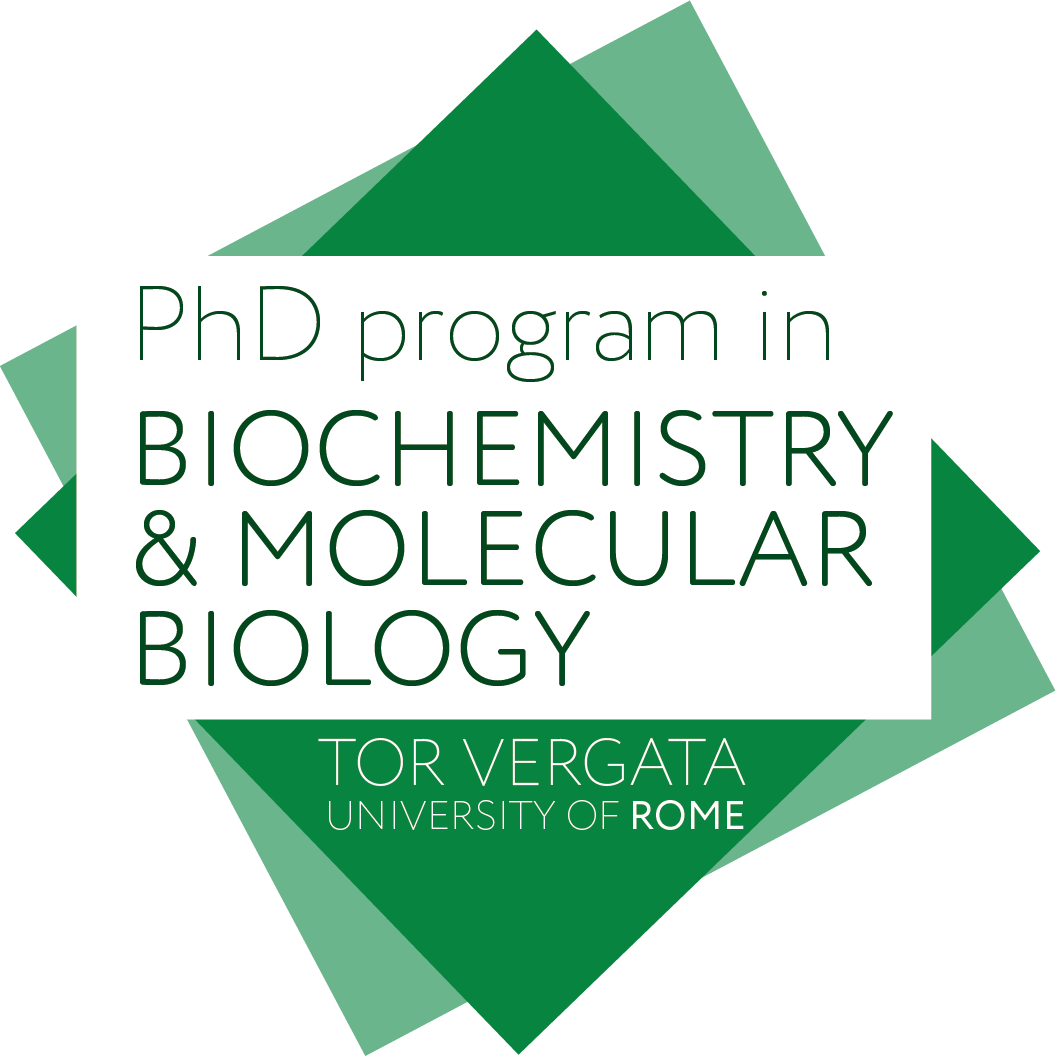Journal Clubs (JCs) have a long history. The first JC was organised in 1875 by Sir William Osler who worked at McGill University, Montreal (Canada). By the end of the XIX century, JCs became widespread across medical communities and were often held twice a month, at which one participant would present a paper and the assembled audience would critique. Here you can read more about the history of JCs.
We keep following the traditions of nobel medical societies of late 1880s. In our PhD program, students hold a JC twice a month presenting a recently published peer-reviewed paper. JCs are held exclusively in English.

06 June 2025 | Federica Cerbara
CD44 regulates epigenetic plasticity by mediating iron endocytosis
Nature Chemistry 2020
Click here to read the paper
06 June 2025 | Claudia Fiorilli
Glycometabolic reprogramming-induced XRCC1 lactylation confers therapeutic resistance in ALDH1A3-overexpressing glioblastoma
Cell Metabolism 2024
Click here to read the paper
06 June 2025 | Valeria Foti
ALDH7A1 protects against ferroptosis by generating membrane NADH and regulating FSP1
Cell 2025
Click here to read the paper
23 May 2025 | Valentina Di Francesco
The Long Noncoding RNA LINC00958 Is Induced in Psoriasis Epidermis and Modulates Epidermal Proliferation
The Journal of investigative dermatology 2023
Click here to read the paper
23 May 2025 | Giada Corti
Cancer-associated fibroblasts produce matrix-bound vesicles that influence endothelial cell function
Science Signaling 2024
Click here to read the paper
16 April 2025 | Francesco Mattia Bonanni
Simultaneously targeting extracellular vesicle trafficking and TGF-β receptor kinase activity blocks signaling hyperactivation and metastasis
Signal Transduction and Targeted Therapy 2023
Click here to read the paper
16 April 2025 | Riccardo Belardi
Bat-infecting merbecovirus HKU5-CoV lineage 2 can use human ACE2 as a cell entry receptor
Cell 2025
Click here to read the paper
04 April 2025 | Veronica Bellanca
Targeting cancer-associated fibroblasts/tumor cells cross-talk inhibits intrahepatic cholangiocarcinoma progression via cell-cycle arrest
Journal of Experimental & Clinical Research 2024
Click here to read the paper
04 April 2025 | Alessia Violante
iPLA2β-mediated lipid detoxification controls p53-driven ferroptosis independent of GPX4
Nature Communications 2021
Click here to read the paper
21 March 2025 | Maria Paola Scioli
Dysregulation of MMP2-dependent TGF-ß2 activation impairs fibrous cap formation in type 2 diabetes-associated atherosclerosis
Nature Communications 2024
Click here to read the paper
21 March 2025 | Benedetta Imperiali
Zeb1 mediates EMT/plasticity-associated ferroptosis sensitivity in cancer cells by regulating lipogenic enzyme expression and phospholipid composition
Nature Cell Biology 2024
Click here to read the paper
21 February 2025 | Margherita Ferretti
Inhibition of PCSK9 potentiates immune checkpoint therapy for cancer
Nature 2020
Click here to read the paper
21 February 2025 | Andrea Graziani
AMPK Regulates Phagophore-to-Autophagosome Maturation
Journal of Cell Biology 2023
Click here to read the paper
21 February 2025 | Mariacristina Franzese Canonico
FOXC2 promotes vasculogenic mimicry and resistance to anti-angiogenic therapy
Cell Reports 2023
Click here to read the paper
07 February 2025 | Sara De Domenico
USP26 as a hepatitis B virus-induced deubiquitinase primes hepatocellular carcinogenesis by epigenetic remodeling
Nature Communications 2024
Click here to read the paper
10 January 2025 | Giorgia D’Addato
Reconstituted ovaries self-assemble without an ovarian surface epithelium
Stem Cell Reports 2023
Click here to read the paper
10 January 2025 | Federica Corigliano
An ILK/STAT3 pathway controls glioblastoma stem cell plasticity
Developmental Cell 2024
Click here to read the paper
18 December 2024 | Valeria Bartolocci
Human papillomavirus-encoded circular RNA circE7 promotes immune evasion in head and neck squamous cell carcinoma
Nature communications 2024
Click here to read the paper
18 December 2024 | Celeste Antonacci
PRMT3 drives glioblastoma progression by enhancing HIF1A and glycolytic metabolism
Cell death & disease 2022
Click here to read the paper
19 July 2024 | Alessia Violante
PTEN inhibits AMPK to control collective migration
Nature Communicatios 2022
Click here to read the paper
05 July 2024 | Maria Paola Scioli
IDH2 stabilizes HIF‐1α‐induced metabolic reprogramming and promotes chemoresistance in urothelial cancer
The Embo Journal 2023
Click here to read the paper
21 June 2024 | Benedetta Imperiali
Cell cycle arrest induces lipid droplet formation and confers ferroptosis resistance
Nature Communications 2024
Click here to read the paper
07 June 2024 | Andrea Graziani
Lipid-droplet associated mitochondria promote fatty-acid oxidation through a distinct bioenergetic pattern in male Wistar rats
Nature Communications 2023
Click here to read the paper
07 June 2024 | Mariacristina Franzese Canonico
YAP silencing by RB1 mutation is essential for small-cell lung cancer metastasis
Nature Communications 2023
Click here to read the paper
24 May 2024 | Margherita Ferretti
Netrin-1 blockade inhibits tumour growth and EMT features in endometrial cancer
Nature 2023
Click here to read the paper
10 May 2024 | Sara De Domenico
Histone deacetylase 11 inhibition promotes breast cancer metastasis from lymph nodes
Nature Communications 2019
Click here to read the paper
19 April 2024 | Giorgia D’Addato
Steroidogenic factor 1 (SF-1; Nr5a1) regulates the formation of the ovarian reserve
PNAS 2023
Click here to read the paper
04 April 2024 | Federica Corigliano
Lung endothelium exploits susceptible tumor cell states to instruct metastatic latency
Nature Cancer 2024
Click here to read the paper
22 March 2024 | Valeria Bartolocci
The efficacy of chemotherapy is limited by intratumoral senescent cells expressing PD-L2
Nature Cancer 2024
Click here to read the paper
8 March 2024 | Celeste Antonacci
Loss of phosphatase CTDNEP1 potentiates aggressive medulloblastoma by triggering MYC amplification and genomic instability
Nature Communications 2023
Click here to read the paper
23 February 2024 | Caterina Lanna
Development of a MEK inhibitor, NFX-179, as a chemoprevention agent for squamous cell carcinoma
Science Translational Medicine 2023
Click here to read the paper
09 February 2024 | Ilaria Arciero
Generation of three-dimensional meat-like tissue from stable pig epiblast stem cells
Nature Communications 2023
Click here to read the paper
26 January 2024 | Giulia Tosetti
ESCRT-dependent STING degradation inhibits steady-state and cGAMP-induced
signalling
Nature Communications 2023
Click here to read the paper
12 January 2024 | Simone Sergio
Serine catabolism generates liver NADPH and supports hepatic lipogenesis
Nature Metabolism 2021
Click here to read the paper
16 December 2023 | Veronica La Banca
Mitochondrial ATP fuels ABC transporter-mediated drug efflux in cancer chemoresistance
Nature Communications 2021
Click here to read the paper
16 December 2023 | Livia Concetti
IRAK4 degrader in hidradenitis suppurativa and atopic dermatitis: a phase 1 trial
Nature Medicine 2023
Click here to read the paper
31 May 2023 | Valeria Palumbo
Transcriptional-translational conflict is a barrier to cellular transformation and cancer progression
Cancer Cell 2023
Click here to read the paper
17 May 2023 | Donata Trivigno
Hypermethylation of heparanase 2 promotes colorectal cancer proliferation and is associated with poor prognosis
Journal of Translation Medicine 2021
Click here to read the paper
3 May 2023 | Simone Sergio
Spatial transcriptomics landscape of lesions from non-communicable inflammatory skin diseases
Nature Communications 2022
Click here to read the paper
19 April 2023 | Veronica La Banca
Periostin deficiency reduces PD-1+ tumor-associated macrophage infiltration and enhances anti-PD-1 efficacy in colorectal cancer
Cell Reports 2023
Click here to read the paper
5 April 2023 | Giulia Tosetti
IRF1 governs the differential interferon-stimulated gene responses in human monocytes and macrophages by regulating chromatin accessibility
Cell Reports 2021
Click here to read the paper
29 March 2023 | Livia Concetti
Serine Catabolism by SHMT2 Is Required for Proper Mitochondrial Translation Initiation and Maintenance of Formylmethionyl-tRNAs
Molecular Cell 2018
Click here to read the paper
22 February 2023 | Vittoria Bellato
Adipose stem cells from patients with Crohn’s disease show a distinctive DNA methylation pattern
Clinical Epigentics 2020
Click here to read the paper
8 February 2023 | Cristina Fiorani
E-cadherin is a biomarker for ferroptosis sensitivity in diffuse gastric cancer
Oncogene 2023
Click here to read the paper
25 January 2023 | Manuel Rigon
Nuclear localization of mitochondrial TCA cycle enzymes modulates pluripotency via histone acetylation
Nature Communications 2022
Click here to read the paper
11 January 2023 | Francesco Moro
Abl family tyrosine kinases govern IgG extravasation in the skin in a murine pemphigus model
Nature Communications 2019
Click here to read the paper
21 December 2022 | Eleonora Mammarella
Satellite repeat transcripts modulate heterochromatin condensates and safeguard chromosome stability in mouse embryonic stem cells
Nature Communications 2022
Click here to read the paper
7 December 2022 | Erica Foffi
A predominant enhancer co-amplified with the SOX2 oncogene is necessary and sufficient for its expression in squamous cancer
Nature Communications 2021
Click here to read the paper
23 November 2022 | Silvia Buonvino
Photodynamic therapy induces autophagy mediated cell death in human colorectal cancer cells via activation of the ROS/JNK signaling pathway
Cell Death & Disease 2020
Click here to read the paper
9 November 2022 | Valentina Tullio
Cannabinoid Receptor-1 suppresses M2 macrophage polarization in colorectal cancer by downregulating EGFR
Cell Death Discovery 2022
Click here to read the paper
23 September 2022 | Lucas Bahia Nogueira
Msx1+ stem cells recruited by bioactive tissue engineering graft for bone regeneration
Nature Communications 2022
Click here to read the paper
14 September 2022 | Raffaele Caposiena
Androgen receptor blockade promotes response to BRAF/MEK-targeted therapy
Nature 2022
Click here to read the paper
7 September 2022 | Adelaide Teofani
Microbiota regulate social behaviour via stress response neurons in the brain
Nature 2021
Click here to read the paper
19 July 2022 | Emanuele Criscuolo
SARS-CoV-2 simulations go exascale to predict dramatic spike opening and cryptic pockets across the proteome
Nature 2021
Click here to read the paper
12 July 2022 | Rosalba Pecorari
cGAS–STING drives the IL-6-dependent survival of chromosomally instable cancers
Nature 2022
Click here to read the paper
